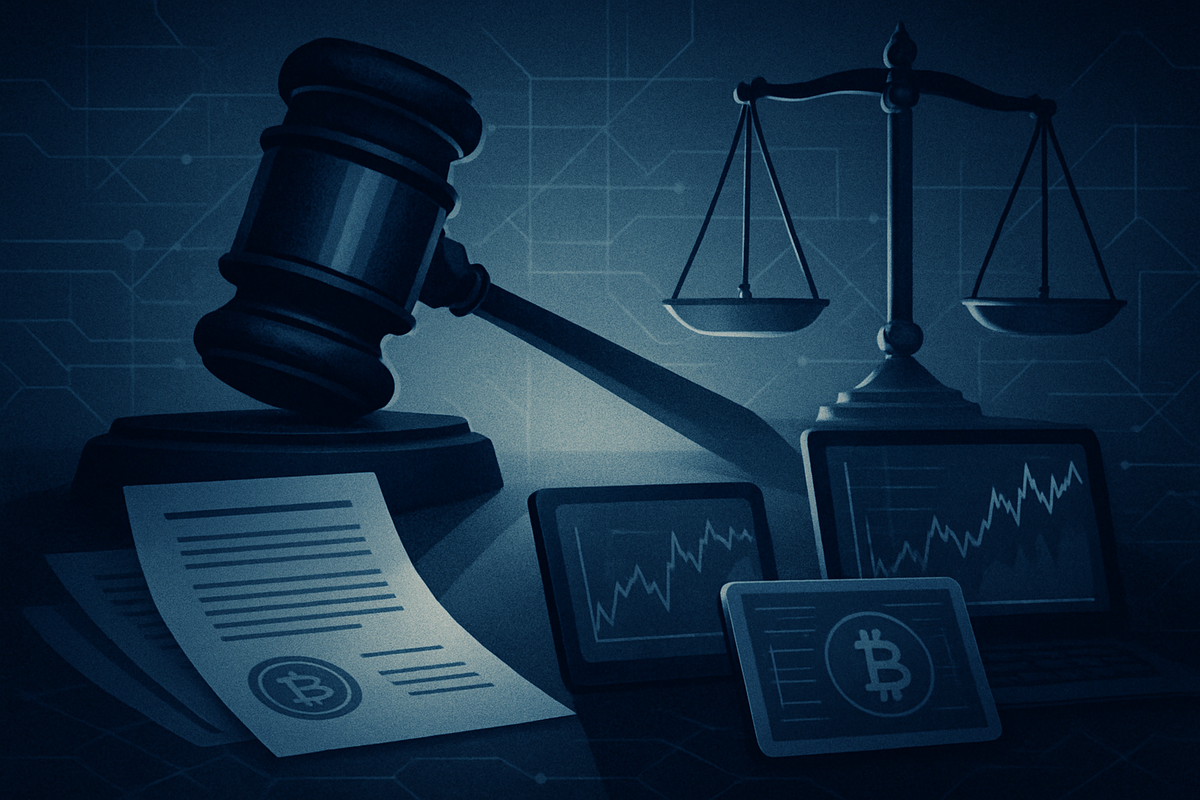
The financial landscape is abuzz as the Securities and Exchange Commission (SEC) and the Financial Industry Regulatory Authority (FINRA) have launched an extensive inquiry into more than 200 firms engaging in crypto-focused treasury deals. This widespread scrutiny stems from observed suspicious stock trading patterns that preceded public announcements of companies acquiring cryptocurrencies for their corporate treasuries. The immediate implications are significant, signaling a potential regulatory crackdown or, at the very least, a concerted effort to clarify compliance expectations in the rapidly evolving intersection of traditional finance and digital assets.
This sweeping investigation casts a shadow over a burgeoning trend where public companies, inspired by early adopters, have aggressively integrated cryptocurrencies into their balance sheets. Regulators are particularly concerned about potential violations of Regulation Fair Disclosure (Reg FD) and insider trading. The outcome of these inquiries could redefine corporate crypto strategies, impose substantial compliance burdens, and significantly impact market confidence in the integrity of digital asset-related disclosures.
Unpacking the Regulatory Spotlight on Crypto-Treasury Strategies
The core of the joint SEC and FINRA investigation targets unusual trading activity—specifically, abnormally high trading volumes and sharp increases in stock prices—that occurred in the days leading up to public announcements of crypto purchases by these firms. This pre-announcement market movement has raised red flags, prompting regulators to probe potential information leaks and selective disclosures. Over 200 firms that announced crypto treasury strategies in 2025 have reportedly been contacted, marking a broad regulatory sweep across various industries, from biotech to gaming, all of whom have adopted these digital asset accumulation models.
This scrutiny, which began recently in 2025, was triggered by a noticeable surge in corporate interest in crypto treasury strategies. Companies, following a model popularized by firms like MicroStrategy (NASDAQ: MSTR), have been raising substantial capital—reportedly over $100 billion this year alone—specifically for digital asset purchases. The suspicious stock price spikes preceding these announcements led regulators to suspect that sensitive, non-public information might have been selectively shared or leaked, allowing certain investors to trade on insider knowledge. FINRA has initiated inquiries by sending letters to some companies, a typical first step in a formal investigation, while SEC officials have issued warnings regarding potential Reg FD violations, underscoring the seriousness of their concerns about market integrity and investor protection.
The immediate aftermath of this regulatory attention includes the expectation of continued inquiries, potentially escalating into formal investigations against specific companies. While no enforcement actions have been publicly issued as of late September 2025, the threat of penalties for insider trading or non-compliance with disclosure rules, including hefty fines and trading bans, looms large. Consequently, firms are now compelled to reassess and tighten their disclosure practices and internal controls. This heightened oversight is expected to increase compliance costs and legal risks for companies pursuing crypto strategies, potentially reshaping how such deals are executed and setting new precedents for future crypto-related enforcement actions.
Market Movers: Who Wins and Who Loses from Heightened Scrutiny
The intensified regulatory scrutiny by the SEC and FINRA is poised to create distinct winners and losers within the financial markets and the burgeoning crypto-treasury sector. Companies with demonstrably lax internal controls, insufficient disclosure practices, or those found to have engaged in selective information sharing are likely to face significant repercussions. These "pseudo-leaders" or speculative players, who may have primarily used crypto-treasury announcements to inflate their stock prices without robust underlying business fundamentals, are particularly vulnerable. Firms under investigation, such as SharpLink Gaming (NASDAQ: SHRP), Trump Media and Technology Group (NASDAQ: DJT), GameStop (NYSE: GME), MEI Pharma (NASDAQ: MEIP), Bitmine, Mill City Ventures (NASDAQ: MVCB), Kindly MD, Empery Digital, Fundamental Global, and 180 Life Sciences Corp. (NASDAQ: ATNF), have already seen unusual volatility and stock movements preceding their crypto disclosures, placing them squarely in the regulatory crosshairs. If violations are proven, these companies could endure formal investigations, substantial fines, trading bans, and a significant erosion of investor confidence. Smaller, less established crypto-native firms may also struggle under the weight of increased compliance costs and legal risks, potentially hindering their growth and ability to secure financing.
Conversely, companies with robust compliance frameworks, transparent disclosure protocols, and a genuine, strategic long-term vision for integrating digital assets into their treasuries are likely to emerge stronger. Established financial institutions that are accustomed to stringent regulatory environments may find this period an opportunity to solidify their position in the crypto space, leveraging their existing infrastructure for compliance and risk management. "True leading companies" like MicroStrategy (NASDAQ: MSTR), which pioneered aggressive Bitcoin accumulation with a clear strategy, could see their market standing reinforced as the regulatory landscape matures and speculative players are weeded out. Furthermore, service providers specializing in legal, accounting, and technological solutions for crypto compliance, auditing, and secure disclosure are expected to see a surge in demand for their expertise, turning regulatory pressure into a business opportunity.
Operationally, all firms involved in crypto-treasury strategies will need to enhance their compliance and internal controls, implementing more rigorous audits and tighter information flow management to prevent selective disclosure and insider trading, adhering strictly to Regulation Fair Disclosure (Reg FD). This will inevitably lead to higher legal and operational costs across the board. Stock prices for non-compliant firms could face short-term volatility and downward pressure, as the mere fact of an inquiry can "send markets into a tizzy," eroding investor trust if deals are perceived as "primed" behind closed doors. For compliant firms, however, the long-term outcome is expected to bring more trust and stability to the crypto market. Business models, especially for companies heavily reliant on the "crypto treasury flywheel" where high stock prices enable further crypto purchases, will need to be rethought. The emphasis will shift towards more conservative, transparent strategies, prioritizing market integrity over speculative plays, potentially leading to industry consolidation where only the most resilient and compliant firms survive.
Broader Implications: A Maturing Market Under the Regulatory Gaze
The ongoing SEC and FINRA scrutiny of crypto-focused treasury deals is not an isolated event but a critical development within broader industry trends aimed at integrating digital assets into mainstream finance under established regulatory frameworks. This intensified oversight underscores regulators' commitment to ensuring market integrity and transparency, particularly as corporate adoption of digital assets, exemplified by over 200 companies announcing such strategies in 2025, continues to grow. The investigations specifically target potential insider trading and violations of Regulation Fair Disclosure (Reg FD), signaling a clear intent to apply traditional securities laws to the crypto ecosystem. This effort is complemented by Nasdaq's increased supervision of listed companies holding cryptocurrencies, which includes demanding shareholder votes for certain deals and pushing for more disclosures, with the looming threat of trading suspensions or delisting for non-compliance.
The ripple effects of this regulatory crackdown are poised to reshape the crypto ecosystem significantly. For companies under direct scrutiny, the immediate future will involve delays in announcing new crypto-treasury plans, coupled with the imperative to implement stricter internal controls and compliance mechanisms, inevitably leading to higher legal and operational costs. Competitors, particularly smaller or niche players, may find themselves at a disadvantage due to increased regulatory burdens, potentially catalyzing market consolidation where larger, more established firms with robust compliance frameworks, like MicroStrategy (NASDAQ: MSTR), gain further dominance. The demand for secure, compliant, and scalable crypto infrastructure will undoubtedly surge, benefiting custodians and other service providers capable of offering institutional-grade digital asset management solutions. For the wider crypto ecosystem, the long-term outcome could be enhanced transparency and increased investor confidence, crucial for sustained growth and institutional adoption. However, in the short term, increased regulatory complexity might slow the overall expansion of the digital asset treasury (DAT) sector and potentially increase market volatility as firms adapt to evolving disclosure standards. Some analysts also suggest that the rise of spot Bitcoin and other crypto ETFs could diminish the appeal of direct corporate crypto treasury strategies for investors seeking indirect exposure.
From a regulatory and policy standpoint, this scrutiny reinforces the enforcement of Reg FD and insider trading laws, sending a clear message that information asymmetry and the exploitation of non-public information will not be tolerated, irrespective of the asset class. Companies and individuals found in violation could face substantial penalties, including fines and trading bans. This action is part of a broader SEC agenda to clarify the regulatory framework for crypto assets, encompassing rules for offerings, custody, and trading, and could also contribute to international harmonization of cryptocurrency regulations, echoing efforts seen in operations like Interpol's "Operation HAECHI VI." Historically, such crackdowns are a recurring theme in emerging financial sectors. Parallels can be drawn to the establishment of the SEC and modern securities regulation after the 1929 stock market crash, the regulatory focus during the Dot-Com Bubble on inflated valuations and fraud, and the reforms following the Subprime Mortgage Crisis. Each instance saw regulators step in to bring order, transparency, and investor protection to rapidly expanding, yet loosely regulated, markets. This current intervention signals a similar maturation phase for the crypto market, emphasizing that fundamental financial principles apply universally.
What Comes Next: Navigating a More Regulated Crypto Landscape
The intensified SEC and FINRA scrutiny ushers in a period of significant short-term adjustments and long-term strategic shifts for firms involved in crypto-focused treasury deals. In the immediate future, companies will likely grapple with increased compliance burdens and higher operational costs as they revamp internal controls and disclosure practices. This could lead to delays in announcing new crypto-treasury initiatives, as firms prioritize regulatory adherence over speed. Companies whose stock prices saw abnormal surges before crypto announcements, such as Trump Media and Technology Group (NASDAQ: DJT) and GameStop (NYSE: GME), face particular scrutiny, potentially leading to stock price declines if their digital asset treasury (DAT) strategies are deemed unsustainable or non-compliant. This "disturbance" in the dynamic crypto market is a necessary, albeit challenging, phase.
Looking further ahead, this heightened oversight is expected to foster a more mature, accountable, and transparent crypto market, ultimately building greater trust and confidence among investors. This regulatory clarity is crucial for enhancing institutional adoption of digital assets. The sector may also witness consolidation, with well-capitalized and compliant companies solidifying their market positions while smaller, less adaptable firms struggle under rising operational costs and complex approval processes. Strategic pivots for firms will be paramount, requiring enhanced compliance and governance, robust risk management frameworks, and proactive engagement with regulatory bodies. Companies must evolve beyond simply accumulating digital assets, exploring comprehensive strategic adaptations such as the tokenization of tangible assets to address security and liquidity within regulated frameworks.
Market opportunities will emerge from this more regulated environment, creating a clearer entry point for institutional investors seeking digital asset exposure through traditional equity markets. Crypto assets continue to offer potential for long-term appreciation and hedging against inflation, appealing to corporate treasuries. Innovation in financial products, like asset tokenization, and the integration of regulated crypto services by traditional banks are also on the horizon. However, significant challenges persist, including ongoing concerns about insider trading, market manipulation, and the inherent volatility of digital assets which can lead to valuation discrepancies. Regulatory uncertainty and lag, systemic risks from large corporate crypto holdings (e.g., MicroStrategy's (NASDAQ: MSTR) influence), and persistent "de-banking" issues for crypto businesses will continue to test the industry. The potential outcomes range from increased enforcement actions and a complete reshaping of corporate disclosure practices to a more professionalized, trustworthy market, or, in a more pessimistic scenario, a significant "Digital Asset Treasury (DAT) incident" causing widespread market turmoil.
Wrap-up: Navigating the New Era of Crypto Treasury Compliance
The comprehensive scrutiny by the SEC and FINRA into over 200 firms engaged in crypto-focused treasury deals marks a definitive turning point for the digital asset market. The core takeaways from this regulatory offensive are clear: regulators are intently focused on stamping out potential insider trading and enforcing Regulation Fair Disclosure (Reg FD) to ensure equitable access to material information. FINRA's establishment of specialized units like the "Crypto Hub" underscores the dedicated and proactive approach being taken to monitor and address violations within this rapidly evolving sector. The overarching goal is to safeguard investors and uphold market integrity, transforming the perception of crypto treasury plays from a "bold frontier" to a landscape demanding rigorous compliance.
Moving forward, the market will undoubtedly experience an increased compliance burden and operational costs for companies navigating this new era. This scrutiny is poised to drive the formalization of market standards for digital asset treasury strategies, with specific guidance and potential enforcement actions anticipated as early as 2026 and formalized standards by 2027. Companies will likely adopt more cautious approaches to deal execution and announcements, prioritizing robust internal controls to prevent information leaks. While this may initially temper the pace of corporate crypto adoption, it is ultimately expected to foster a more stable environment. The continued integration of institutional capital, bolstered by approvals of spot Bitcoin and Ethereum ETFs, alongside legislative developments like the GENIUS Act for stablecoins, will further enhance market stability and liquidity, albeit with increased scrutiny on how these assets are managed and disclosed.
The significance and lasting impact of this regulatory push cannot be overstated. It is a critical step towards restoring trust and transparency in the digital asset sector, setting crucial precedents for how crypto firms manage and disclose material information, and effectively harmonizing crypto market practices with established securities laws. This commitment to enhanced market integrity is vital for the healthy, long-term evolution of the crypto ecosystem. Investors, in the coming months, should meticulously watch for specific enforcement actions and any new regulatory guidance issued by the SEC or FINRA. Close attention should also be paid to company-specific disclosures and governance practices, the broader impact of crypto ETFs on demand for direct corporate treasuries, and the prevailing macroeconomic environment. While the path to full regulatory clarity remains fluid, this concerted effort signals a clear message: the corporate adoption of crypto assets must adhere to the same principles of transparency and fair play as traditional financial markets, ultimately fostering a more mature, trustworthy, and sustainable environment for digital assets.
This content is intended for informational purposes only and is not financial advice





